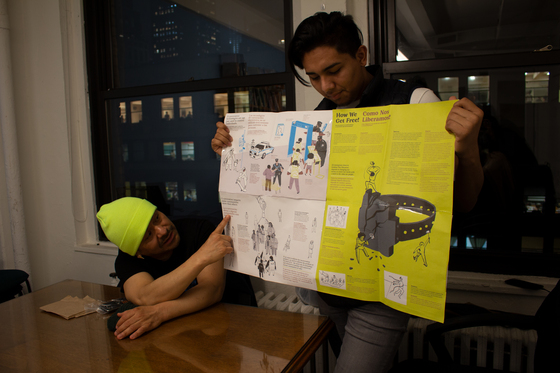Communities across the country are looking for ways to reduce the number of people who are incarcerated or held in detention centers. Authorities like judges, police, and immigration enforcement agents believe that one way to tackle this problem is through a set of technologies and policies known as e-carceration. E-carceration, short for electronic incarceration, is when authorities use surveillance technology like ankle monitors, cameras, and GPS to track and control people in their own communities.
While e-carceration might get some people out from behind bars, the same technology makes it much easier to monitor and punish more people overall. Black, brown, and immigrant communities have become the biggest targets. Having fewer people behind bars, but giving authorities more power to punish communities of color is not a just solution to the problems of mass incarceration.
To help communities understand how e-carceration works and the consequences for Black, brown, and immigrant communities, CUP teamed up with Freedom to Thrive and designers Shreyas R Krishnan and Kruttika Susarla to create Not on our watch! The foldout poster explains and illustrates the concept of “e-carceration” and how it perpetuates a system of mass surveillance of communities of color. Available in English and Spanish, Not on our watch! also highlights community actions that have been taken across the country to offer alternatives to our current systems of incarceration and surveillance.
Not on our watch! is being distributed across the country through Freedom to Thrive’s network of organizers and community members.







